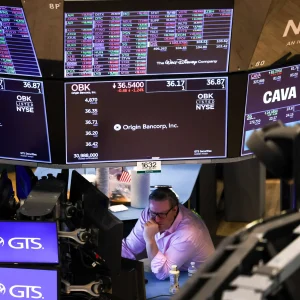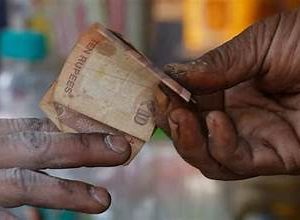By Administrator_India
Burger King, the Indian subsidiary of US-based fast-food chain, has opened its three-day initial public offering on December 2, with a price band at Rs 59-60 per share.
The public issue, which will close on December 4, consists of a fresh issue of Rs 450 crore and an offer for sale of 6 crore equity shares by promoter QSR Asia. The company already raised Rs 150 crore in a pre-IPO placement from promoter and Amansa Investments.
All brokerage houses advised subscribing the issue given the attractive valuations compared to listed peers (Jubilant Foodworks and Westlife Development); expected revenue growth generation; robust growth in restaurants additions following its last five-year record; strong consumer proposition as a value brand and ability to sustain gross margin in double digits.
“On FY20 basis, company peers such as Jubilant Foodworks (Domino’s Pizza) and Westlife Development (McDonald’s) are trading at 8.6x and 5.0x respectively on enterprise value (EV)/sales multiple. At the upper end of the price band, the company will trade at an EV/sales multiple of 2.2x on FY20 basis, which we believe is quite reasonable. We believe that there is a good possibility of listing gains given lower valuations as compared to other listed peers,” Keshav Lahoti, Associate Equity Analyst at Angel Broking told Moneycontrol.
“We are also positive on the long-term growth prospects of the Industry and the company. Hence, recommend subscribing to the issue for long-term as well as for listing gains,” he said.
Geojit Financial Services also recommended subscribing with a long-term perspective citing attractive valuations considering its robust growth in store additions and future revenue.
Burger King India, which was incorporated in November 2013 and QSR Asia is their holding company, is a fast-growing international QSR chain in India. The company has exclusive rights to develop, establish, operate and franchise Burger King branded restaurants in India as a master franchisee.
The master franchise arrangement provides the company with the ability to use Burger King’s globally recognised brand name to grow its business in India while leveraging the technical, marketing and operational expertise associated with the global Burger King brand. The Burger King brand is the second-largest fast-food burger brand with a global network of over 18,600 restaurants in more than 100 countries, as on September 2020.
The company grew at a faster pace in the last five years (till FY20) by mainly leveraging the disruption at McDonald’s franchise in North India, ICICI Direct feels.
In the last six years of operations in India, Burger King has opened 268 stores. It plans to continue to build its restaurant network using cluster & penetration strategy and is targetting to open around 300 restaurants by December 2021 & 700 by December 2026, which extended by one year due to COVID-19 crisis.
“Looking at the current run rate, we believe management will be able to achieve the target of 700 stores by December 2026. As the store count will increase, operating leverage will kick in and the company will be able to report a profit. We believe there is ample scope available for the company to increase its business in India,” Keshav Lahoti said.
Despite being impacted by COVID-19, 249 out of 268 restaurants are operational with high standards of safety and hygiene protocols across its restaurants and has intensified focus on delivery, takeaways and drive-thru.
The quick-service restaurant chain is going to utilise fresh issue proceeds for roll out of owned Burger King Restaurants and has plans to add 50/70/80 stores in coming three years which will give a huge head start with better/cheaper availability of retail space, and weaker competition in North and east markets of India (little investment by McDonald’s in past few years) and rising scale in existing clusters, said Prabhudas Lilladher while recommending subscribe to the issue.
The brokerage believes Burger king has competitive advantages which make it well placed to capitalize on the emerging opportunity with 1) exclusive pan India master franchise of Burger King, second-largest Burger brand globally; 2) flexibility in tailoring menu to Indian tastes and preferences as well as promotions and pricing offers; 3) fixed royalty at 5 percent; 4) cluster-based approach with faster scalability and operating leverage; 5) high sales per square feet at Rs 31,093 and higher Average sales/capex at 1.87x; 6) strong consumer proposition as a value brand with premium imagery globally; and 7) targeting growing section of millennials given young population of India.
Burger King’s revenue grew around 49 percent CAGR over FY18-FY20 led by significant store additions. Gross margin has improved consistently from 62 percent in FY18 to 64 percent in FY20 and EBITDA grew from Rs 8 crore to Rs 104 crore, during the same period.
The company had reported losses in the past and is expected to report losses in FY21-FY22 due to higher depreciation on store additions, but then onwards, brokerages believe it could turn profitable on the back of robust revenue and strong operating performance.
“We expect near term financials to remain under pressure as BKIL has suffered a loss of Rs 118 crore in the first half of FY21. We expect Burger King to turnaround by FY23/24 led by post COVID recovery and benefits from rising economies of scale and new store openings,” Prabhudas Lilladher.
ICICI Direct believes benefiting from reduced competition from unorganised smaller local restaurants due to COVID related disruptions and expansion of food delivery businesses, the company is well-positioned to expand its footprint in India.
“We believe Burger King would be able to capture the growth largely aided by changing habits of eating out/ordering outside food. The company was quick to scale up its operating margins to double-digit in the last two years. However, it is still making a loss at the bottomline level due to high depreciation provision,” said the brokerage which has a subscribe recommendation on the stock.
KR Choksey, too, said the changing lifestyle and the eating habits of the youngest millennial population of India would further drive the revenue of Burger King, and also the effective marketing strategy, and the well-defined standard store opening process would be catalysts in increasing the number of footfalls in BKIL’s restaurants.
The brokerage believes that the operational efficiency and the standard operating procedure will achieve economies of scale resulting in better margins. Hence, it recommended a subscribe rating on the IPO.
This would be the fourteenth IPO in 2020. After Burger King’s issue, the total funds raised by IPOs would be Rs 30,287 crore in the current year.





